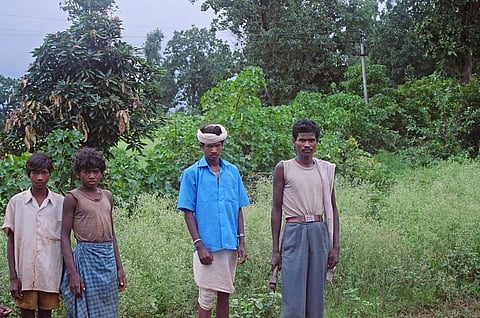

The novel coronavirus disease (COVID-19) crisis has hit the forest dwellers in India hard: The pandemic has led to a loss of livelihood and employment, caused food insecurity and socio-economic distress for the marginalised forest-dwelling communities, according to a new report.
Atrocities and injustices faced by these communities due to forest, conservation and economic policies, too, increased manifold during the pandemic, the report stated.
Community Forest Rights-Learning and Advocacy (CFR-LA), a national platform of activists and experts working with forest-dwelling communities, prepared and released the report. It did so in collaboration with Vikalp Sangam, a group of organisations working on providing alternatives for social problems.
The report suggested that the Union Ministry of Tribal Affairs (MoTA) should create a COVID-19 response cell — with a team of designated nodal officers — to coordinate with state governments / tribal departments and civil society organisations, monitor issues and provide necessary support to tribal people and forest dwellers.
Other suggestions included:
The report found that recognition of forest rights to use and manage community forests under the Scheduled Tribes and Other Traditional Forest Dwellers (Recognition of Forest Rights) [FRA] Act, 2006, made it possible for many Adivasi and forest-dwelling communities to overcome the distress.
It added that the local communities and Gram Sabhas, when empowered by legislations such as the FRA, 2006, better understood the complexities than the local administrations. They, therefore, were more efficient in dealing with a crisis-like situation.
“Local response by villages in remote forest areas and Gram Sabhas organising relief work in Maharashtra has made it evident that decentralisation and community empowerment can be more effective in dealing with a crisis if resources and support are provided to such self-governing local institutions,” the report said.
“At least 12 years have passed since the enactment of FRA, but only 3-5 per cent of community forest rights have been recognised so far. Despite the limited recognition, Gram Sabha members have proved that they are self-sufficient,” said Sanghamitra Dubey, an Odisha-based independent researcher and author of the report.